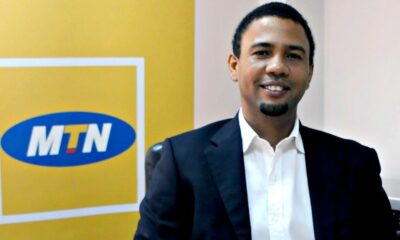Stakeholders have reiterated the need for investment in Nigeria’s Information and Communications Technology sector to boost its economy.
The views were expressed at this year’s Financial Services Innovators and Nigeria Association of Computing Students’ Innovative Challenge, tagged ‘#TechonDemand’ hackathon, according to a statement on Monday by Plexus Media Interlinks, the public relations agency for FSI.
The FSI and NACOS challenge held virtually from October 1 to 9, and physically from October 12 to 14, 2021.
The competition was organised to provide solutions in the digitisation of key sectors such as education, health, transport and financial services.
According to stakeholders at the event, Nigeria needs to invest in infrastructure and human capital development as well as promote indigenous contents in the ICT sector to boost its economy.
The Director-General, National Information Technology Development Agency, Kashifu Abdullahi, said, “The [Nigerian] government has rolled out initiatives to see how we can invest in our people, as we realise that our greatest assets are our people.
“The Ministry of Communications and Digital Economy’s policy is aimed at promoting indigenous content and helping Information Technology businesses to grow and thrive in Nigeria.”
The NITDA DG, therefore, called on Nigerian students to be innovative and to think of ways to use technology to solve problems and create wealth for themselves.
Abdullahi also urged them to leverage the FSI innovative challenge to create jobs.
“You do not need to start thinking of jobs after graduating. For you, the computer students, this is an opportunity to key into this,” he added.
The dream to build a global technology enterprise, the Executive Director of FSI, Mrs Aituaz Kola-Oladejo, said, would involve the active participation of every stakeholder, financial and non-financial institutions, fintechs and government agencies.
“I strongly believe that if we create an enabling platform for young innovators to thrive, we can make Nigeria a global leader in innovative technology,” she added.
The President, Nigeria Computer Society, Prof Adesina Sodiya, said NCS would continue to support and promote technological development and IT business for sustainable development of Nigeria.
On his part, the President of NACOS, Olamilekan Abolade, said, “We want to use our power as students to push for the rebirth of technology, which is the enabler for adequate innovations and ensuring productivity.”
Meanwhile, Wakanda, AAU and STEMInnovators emerged winners of the competition and the teams were awarded N1m, N500,000 and N300,000 prize money respectively.
FutureTrek, The Bells Team, Start Vest, GodHands, Halal Invest, Team KPT and Adashi, who came 4th to 10th positions also got a consolation prize of N100,000 each.
Team Wakanda presented a DigiPay, a USSD-based payments collection system, to clinch the star prize.
Presenting their solution, team Wakanda described DigiPay as a collection system that could allow merchants and associations in higher institutions to collect electronic payments from customers and members.
“The solution will enable the collection of payments for goods sold online, in physical stores or via social media, as well as for the collection of payments for associations in higher institutions,” the team added.


 Naira3 weeks ago
Naira3 weeks ago
 Naira3 weeks ago
Naira3 weeks ago


 Naira4 weeks ago
Naira4 weeks ago




 Naira2 weeks ago
Naira2 weeks ago
 Commodities4 weeks ago
Commodities4 weeks ago


 Sport Business4 weeks ago
Sport Business4 weeks ago


 News3 weeks ago
News3 weeks ago


 Banking Sector4 weeks ago
Banking Sector4 weeks ago



















